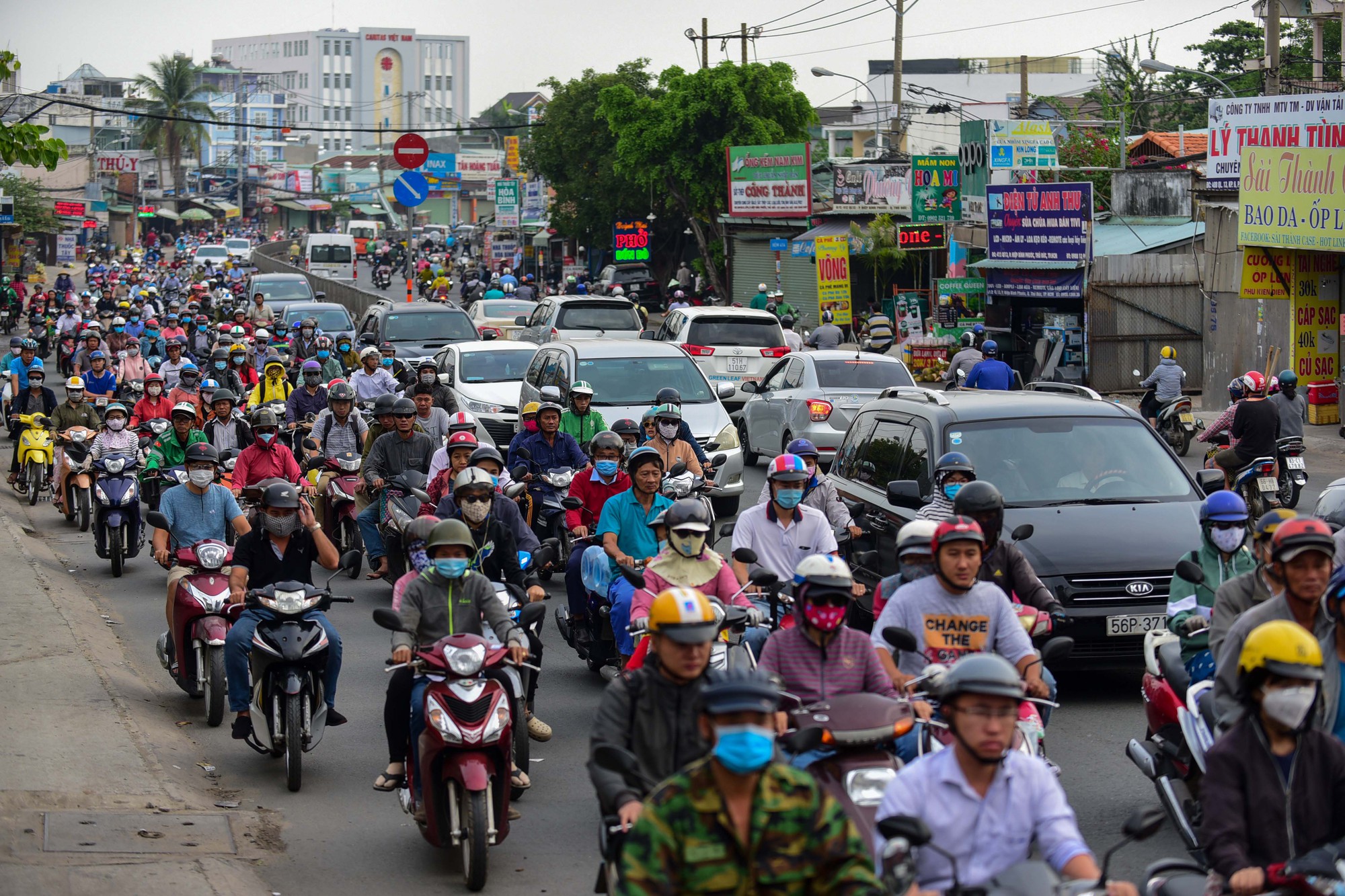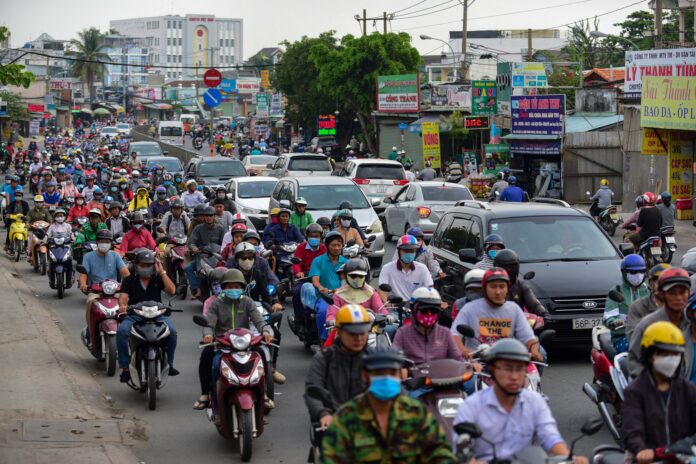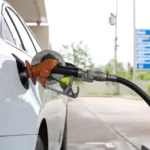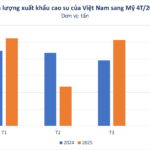
Within 18 months from the effective date of this regulation, motorcycles and scooters in traffic must undergo emission testing.
Mr. Nguyen Hoang Duc, representing the Department of Environment, shared that the draft decision outlines the timeline for implementing the national technical regulation for motorcycle and scooter emissions in Vietnam.
Specifically, from July 1, 2027, emission testing will be mandatory for motorcycles and scooters in Hanoi and Ho Chi Minh City.
This requirement will be extended to other centrally-run provinces and cities from July 1, 2028.
By July 1, 2030, it will be effective in the remaining provinces and cities. However, the draft notes that “depending on the actual situation, these provinces and cities may decide to implement it earlier.”
According to the regulation, motorcycles manufactured before 2008 must comply with Level 1 – the maximum allowable emission limits specified in the national technical regulation for motorcycle and scooter emissions in Vietnam.
Motorcycles produced from 2008 to 2016 should meet Level 2 standards, while those manufactured from 2017 to June 30, 2026, must adhere to Level 3. Motorcycles produced after July 1, 2026, will be subject to Level 4 standards.
For scooters, those produced before 2016 must comply with Level 1 emission limits. Scooters manufactured from 2017 to June 30, 2027, should meet Level 2 standards, while those produced after July 1, 2027, will be subject to Level 4 requirements. Additionally, motorcycles and scooters operating in Hanoi and Ho Chi Minh City must meet emission standards of Level 2 or higher, effective from January 1, 2030.
Furthermore, motorcycles and scooters entering the “low emission zone” in Hanoi, as stipulated in the Capital Law, must comply with emission standards set by the People’s Council resolutions.
The Department of Environment emphasized that within 18 months from the effective date, all motorcycles and scooters in traffic must undergo emission testing. After this period, relevant authorities will conduct inspections, monitoring, and handle violations accordingly.
“Due to the extremely large number of motorcycles and scooters in Vietnam, it is impractical to expect all citizens to get their vehicles tested within a short period,” explained Mr. Hoang Duc.
What GDP Growth Rate Does Vietnam Need to Attain to Surpass a Per Capita GDP of $28,500 and Join the High-Income Country Group by 2045?
On June 3, the National University of Economics in collaboration with the Central Policy and Strategy Committee organized a policy dialogue seminar on the topic: “Orientation and Solutions for High and Sustainable Economic Growth towards 2045”. At the seminar, experts discussed growth scenarios and solutions for Vietnam to achieve its economic development goals.
Unleashing the Power of Resources: Thuy Nguyen and Hai Phong City’s Journey to a New Era of Success
Recent developments have placed Hai Phong, especially Thuy Nguyen, in the spotlight. A series of events, festivals, and administrative updates have drawn attention to this area, which is now undergoing significant transformation. The focus is on creating a sustainable urban environment with a holistic approach to development, encompassing politics, culture, and commerce, while also integrating a range of amenities and services and enhancing regional connectivity.
Vinhomes Unveils Plans for Two Industrial Parks in Hai Phong with a Massive Investment of nearly $430 Million
Let me know if you would like me to provide any additional revisions or if you have another writing task for me!
The Ngu Phuc Industrial Park (Phase 1), spanning over 238 hectares in Ngu Phuc and Kien Quoc communes (Kien Thuy district), and the Tan Trao Industrial Park (Phase 1), covering more than 226 hectares in Tan Trao and Kien Quoc communes, are set to be the newest and most promising industrial hubs in the region.
Tons of Vietnam’s ‘White Gold’ Arrive in the US with a Hefty Price Tag and 7% Import Tax
Vietnam witnessed a significant surge in export prices for this particular product to the US market, with a remarkable increase of almost 30%.





















